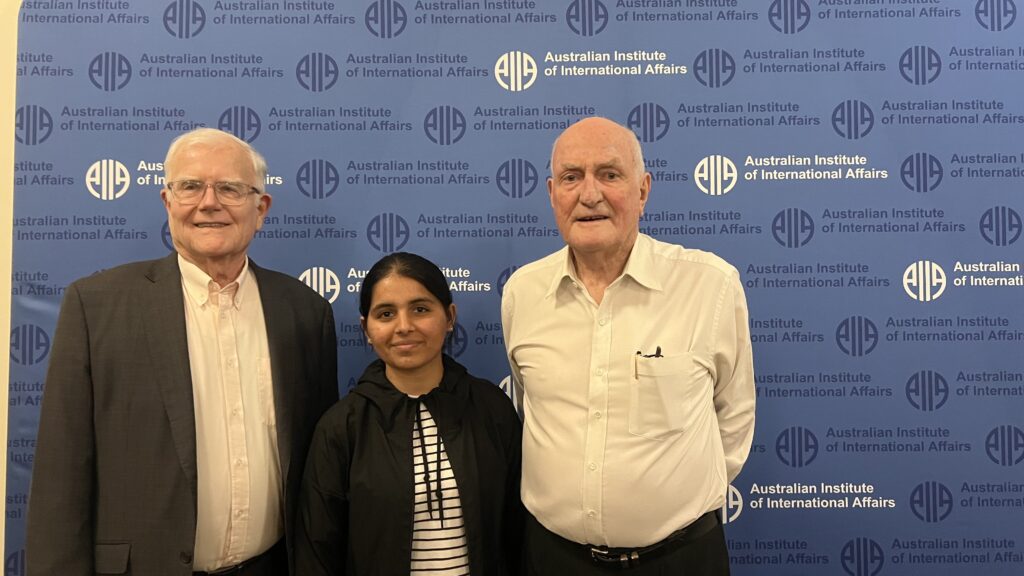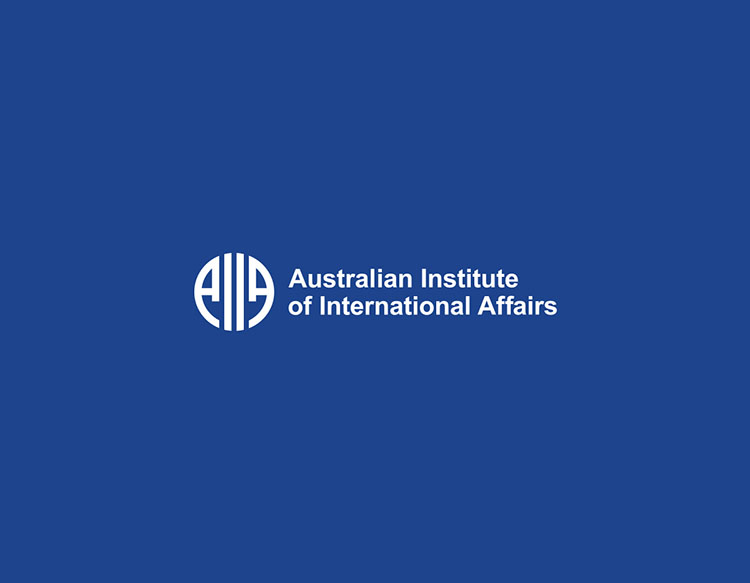On 21 October 2025, AIIA NSW welcomed Richard Broinowski AO, who shared his outlook for the forthcoming Asia-Pacific Economic Cooperation (APEC) forum to be hosted in Gyeongju, South Korea, by President Lee Jae-myung.
He began with a brief history of APEC, established in 1989 by Prime Minister Bob Hawke and twelve Asia-Pacific economies, including South Korea under its first democratically elected president, Roh Tae-woo. The founding group included ASEAN nations and the United States, despite initial opposition to the latter’s inclusion. APEC now has 21 members. The organisation aims to promote free trade and investment, liberalisation, and regional business cooperation.
Broinowski described Donald Trump as the “antithesis” of these goals. Trump’s attendance at APEC this year will not be the only one drawing attention. President Xi Jinping will also be present, and there is speculation that North Korean leader Kim Jong Un may attend – part of New Korean President Lee Jae-myung’s effort to position South Korea as a conduit between the United States and North Korea. Over his five months in office, Lee has pursued a carefully balanced foreign policy aimed at re-establishing stronger ties with Russia and China.
The most consequential discussion at Gyeongju was likely to be at the margins, not least contentious issues between Xi and Trump ranging from trade in rare earth minerals to the potential American acquisition of TikTok. Whether the two leaders can reach any modus operandi remains uncertain. Putin’s attendance, Broinowski added, might also spark conversation about the conflict in Ukraine and the prospects for a peace deal.
When addressing the two Koreas, Broinowski highlighted the divergent economic and security challenges facing each. Regarding South Korea, he observed that the country faces the world’s lowest fertility rate, stagnating real wages, limited home ownership, high household debt, instability in the real estate sector, and weakening export demand.
Concerning North Korea, Broinowski emphasised that Kim Jong-un’s participation at Gyeongju may depend on assurances that denuclearisation will not be discussed. The United States came closest to curbing North Korea’s nuclear ambitions with a framework arrangement negotiated in 1994, when President Clinton offered the north two Westinghouse power reactors in exchange for it closing down its research reactor at Yongbyon. This deal was undone during the Bush administration, when North Korea was labelled part of the “Axis of Evil”. Broinowski noted that the collective memory of the devastating US bombings during the Korean War continues to shape Kim Jong-un’s perception of nuclear weapons as essential deterrents. Pyongyang’s arsenal has in turn spurred growing interest in South Korea developing its own nuclear weapons. It already operates 26 nuclear power reactors.
Broinowski then turned to Japan, offering insights on newly elected Prime Minister Sanae Takaichi, who is expected to make her international debut at APEC. Takaichi takes a hawkish stance on security policy, hopes to abolish Article 9 of Japan’s post-World War II constitution (which restricts Japan’s right to declare war) and plans to increase Japan’s defence spending beyond two percent of GDP within two years. Her relationship with Trump will likely be tested at APEC, particularly as she has expressed opposition to the trade and investment deal negotiated by her predecessor. Nevertheless, given the United States’ role as Japan’s key security partner, Takaichi will need to balance her pursuit of greater autonomy with the imperative of maintaining a close alliance.
Takaichi’s economic program reprises “Abenomics,” featuring loose fiscal and monetary policy and a broad, if vague, growth strategy. Whether these measures will address Japan’s demographic and cost-of-living crises remains uncertain. Takaichi is an unapologetic social conservative whose newly-established coalition includes Nippon Ishin, a right-wing populist party. She espouses a revisionist perspective on Japan’s wartime history; whether this position generates friction with Lee or Xi at APEC remains to be seen. Despite Takaichi’s hawkishness, Broinowski predicted that Lee Jae-myung would remain pragmatic in managing Japan–Korea relations.
In his concluding remarks, Broinowski suggested that the underlying agenda of the forum can be understood through what President Lee hopes to achieve. The convergence of major powers, he argued, presents a rare opportunity for dialogue amid global security and economic tensions. Within South Korea, public debate continues over the reliability of the United States as a security partner, alongside a growing sentiment that national defence should rest more firmly in domestic hands. Drawing a comparison with Australia, he remarked that Prime Minister Albanese could benefit from adopting a similarly independent approach to foreign and defence policy.
During the discussion segment, questions turned to the Korean perspective on AUKUS. Broinowski assessed that, given Lee’s desire to maintain positive relations with China while avoiding provocation of the United States, South Korea is unlikely to either oppose or endorse the initiative publicly. Still, because its security depends heavily on the US alliance, Seoul arguably has an interest in America’s continued development of nuclear submarines and in seeing Australia similarly equipped as a Pacific partner.
Asked whether Xi Jinping’s leadership and his standing within the Chinese Communist Party was being threatened, Broinowski said he wasn’t sure but thought probably not. Xi’s presence brought stability to both global politics and China’s domestic sphere, reinforced by his firm control of the Central Committee. He credited Xi with spearheading China’s Belt and Road Initiative, development projects in Africa, technological advancement and a resilient economy, while retaining strong support among both the Chinese public and the politburo.
In closing, Broinowski observed that the diversity of leaders attending APEC 2025 presents a rare opportunity for meaningful dialogue amid intensifying global tensions. He underscored President Lee Jae-myung’s pragmatic diplomacy and the potential for constructive engagement between major powers, while reaffirming APEC’s enduring importance as a forum for economic cooperation and negotiation in the Indo-Pacific region.
Report by Vanshika Saini, AIIA NSW Intern

Speaker Richard Broinowski right, AIIA NSW president Ian Lincoln left and intern Vanshika Saini centre

